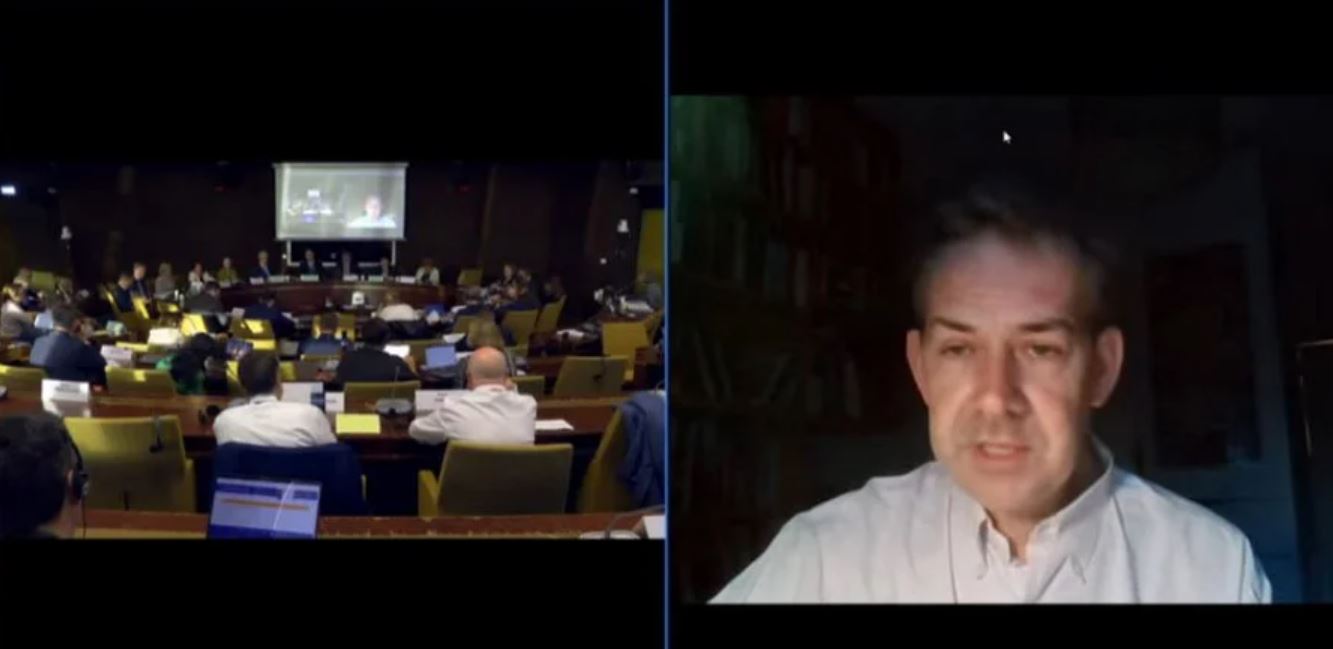On the initiative of the Parliamentary Assembly of the Council of Europe, a public hearing on the topic “The humanitarian situation in Nagorno-Karabakh and the obligations of Azerbaijan” is being held. Representatives of Monitoring, Migration, and other PACE commission experts participate.
Thomas de Waal a senior fellow with Carnegie Europe, participates in the public discussion from London. Referring to the forced displacement of the population of Nagorno Karabakh, the expert said. “The military operations of September 19 marked the end of the existence of the territorial unit of ethnic Armenians, which existed since 1923. That is a human tragedy; 99 percent of Armenians living in Nagorno-Karabakh had to leave their homeland.”
Thomas de Waal said Ilham Aliyev had a choice to resolve the issue through dialogue, but he chose to use military force. According to the expert, this was also a message to Western leaders and indicated the end of the dialogue with Karabakh Armenians. Speaking about the reintegration policy promoted by Azerbaijan, the expert said.
“International organizations should closely monitor this process. Azerbaijan is now proposing a reintegration agenda under which Armenians can return to Karabakh and become citizens of Azerbaijan. Azerbaijan does not have an institute of dual citizenship, so Armenians returning to Nagorno-Karabakh must renounce RA citizenship. We have to ask: why does Azerbaijan propose this initiative when 99 percent of the Armenians of Nagorno-Karabakh have left Karabakh?
Read also
And why didn’t he make that offer before? No national minority has special political rights or autonomy in Azerbaijan. National minorities are not protected in this country.” Thomas de Waal mentioned the conclusions of the CE committees on this occasion.
The expert also spoke about Azerbaijan’s rhetoric against Armenians and assured. “Until that rhetoric is not revised in the media, in the educational system, I can assure you that it is difficult to imagine Armenians who can live safely in the territory of Azerbaijan.” According to the expert, Azerbaijan has a choice to see a strong or weak Armenia.
However, he chooses weak Armenia. “Azerbaijan has a choice: either it wants to see a strong Armenia that has good relations with Turkey and is independent of Russia, or a weak Armenia that has closed borders with Turkey and is dependent on Russia. “Unfortunately, Azerbaijan chose the second Armenia.” Regarding “enclaves,” Thomas de Waal said territorial issues should receive much international attention and are long-term issues.
Tatev HARUTYUNYAN






















































